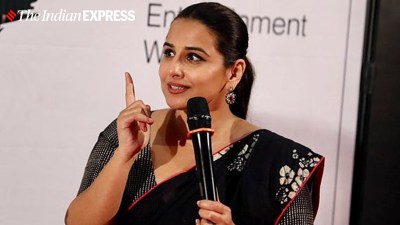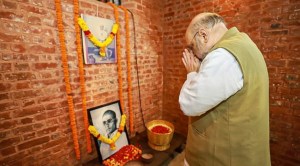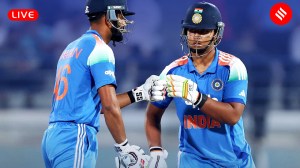
Why in the news?
World Hindi Day 2025, also known as Vishwa Hindi Diwas, is celebrated on January 10 every year by Hindi enthusiasts worldwide. It aims to spread awareness about the Hindi language, promote its use on international platforms, and strengthen ties among Hindi-speaking communities worldwide. This year’s theme is “Hindi: A Global Voice of Unity and Cultural Pride.”
Key Takeaways:
1. Vishwa Hindi Diwas was started to mark the anniversary of the first time Hindi was spoken in the United Nations General Assembly (UNGA) in 1949. In 1975, then Prime Minister Indira Gandhi inaugurated the first World Hindi Conference. Since then, conferences have been organized in different parts of the world.
2. However, it was on January 10, 2006, when World Hindi Day was celebrated for the first time. This decision was announced by the then Prime Minister of India, Manmohan Singh.
3. The purpose of this day is to create awareness about the Indian language and promote it as a global language around the world. It is also used to create awareness about the usage of the Indian language and about the issues persisting around the usage and promotion of the Hindi language.
4. On June 10, 2022, the UN General Assembly adopted a resolution on ‘Multilingualism,’ co-sponsored by India. For the first time, this resolution mentioned the Hindi language and encouraged the UN Department of Global Communications to continue disseminating important communications and messages in both official and non-official languages, including Hindi.
Story continues below this ad
5. A Voluntary Financial Contribution Agreement was signed between the UN and the Government of India in 2018 to promote Hindi within the UN system for a two-year term. This agreement was later extended and is currently in force until March 2025.
6. While World Hindi Day is celebrated on January 10 every year, Hindi Diwas is celebrated on September 14 annually. This day concentrates on the promotion and global recognition of the Hindi Language around the world. On the other hand, Hindi Diwas, which is celebrated in India, focuses on recognition of the Hindi language in India.
Is Hindi India’s national language?
1. More than 100 languages and 270 mother tongues are spoken across the country. However, the Constitution does not list any one language as India’s “national language”.
2. Article 351 (“Directive for development of the Hindi language”) says “It shall be the duty of the Union to promote the spread of the Hindi language, to develop it so that it may serve as a medium of expression for all the elements of the composite culture of India”.
Story continues below this ad
3. However, the provision says, this must be done “without interfering with its genius, the forms, style and expressions used in Hindustani and in the other languages of India specified in the Eighth Schedule”
How widely is Hindi spoken in India?
1. The 2011 linguistic census accounts for 121 mother tongues, including 22 languages listed in the 8th Schedule of the Constitution. Hindi is the most widely spoken, with 52.8 crore individuals, or 43.6% of the population, declaring it as their mother tongue. The next highest is Bengali, the mother tongue for 9.7 crores (8%) — less than one-fifth of Hindi’s count.
2. In terms of the number of people who know Hindi, the count crosses more than half the country. Nearly 13.9 crore (over 11%) reported Hindi as their second language, which makes it either the mother tongue or second language for nearly 55% of the population.
BEYOND THE NUGGET: Use of Hindi language in the Indian Court
1. Clause 1 of Article 348 (“Language to be used in the Supreme Court and in the High Courts and for Acts, Bills, etc.”) says that “until Parliament by law otherwise provides”, “all proceedings in the Supreme Court and in every High Court”, and all Bills, Acts, ordinances, rules, and orders etc. at the Union and state levels, “shall be in the English language”.
Story continues below this ad
2. However, Article 348 (2) permits “the use of the Hindi language, or any other language used for any official purposes of the State, in proceedings in the High Court having its principal seat in that State” after authorisation by the Governor and “with the previous consent of the President”.
3. But again, while the proceedings could be in any official language, Article 348 (2) mandates that “any judgment, decree or order passed or made by such High Court” must be in English.
4. Section 7 of the Official Languages Act dealt with “Optional use of Hindi or other Official language in judgements etc. of High Courts”. It said that from the day he/she is appointed, the Governor of a state can, with the President’s consent, “authorise the use of Hindi or the official language of the State, in addition to the English language, for the purposes of any judgment, decree or order passed or made by the High Court for that State”, adding that it shall be accompanied by an English translation issued under the High Court’s authority.
(Source: The languages India speaks, The language used in courts: What the Constitution and laws say, World Hindi Day, mea.gov.in)
Story continues below this ad
For your queries and suggestions write at khushboo.kumari@indianexpress.com
Subscribe to our UPSC newsletter. Stay updated with the latest UPSC articles by joining our Telegram channel – IndianExpress UPSC Hub, and follow us on Instagram and X.


































